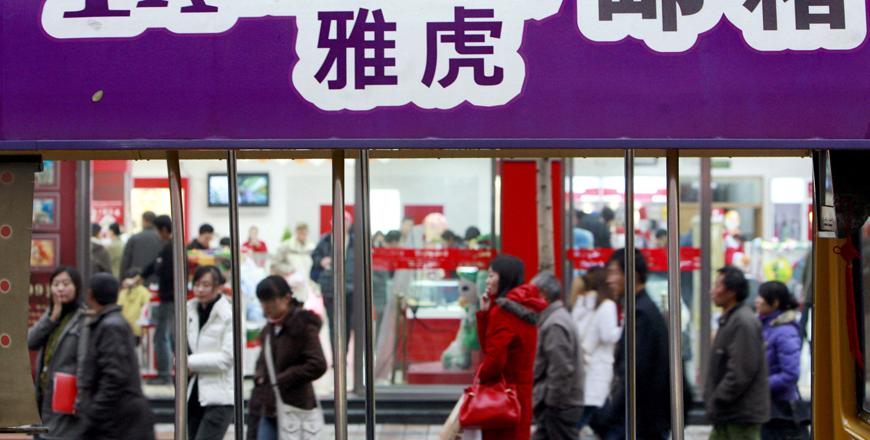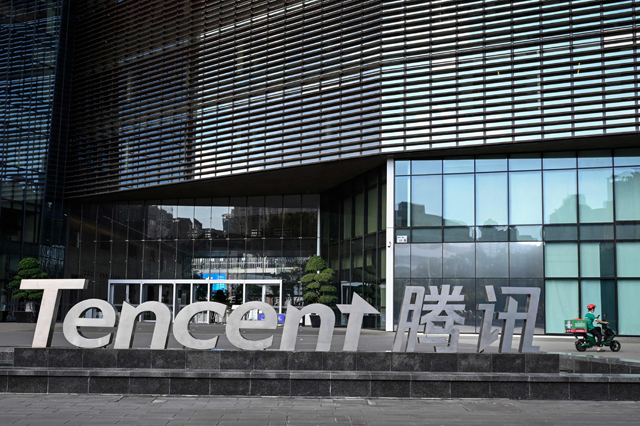You are here
Yahoo, Fortnite exit China as tech crackdown bites
By AFP - Nov 02,2021 - Last updated at Nov 02,2021

In this file photo taken on November 14, 2007, pedestrians walk past a Yahoo billboard in Beijing. US Internet services giant Yahoo pulled out of mainland China starting on Monday, the company said in a statement on its website, amid an ongoing crackdown by Beijing on the tech industry (AFP photo)
BEIJING — US Internet services company Yahoo said on Tuesday it has pulled out of mainland China, becoming the latest tech firm to withdraw as a crackdown by Beijing on the industry gathers pace.
The move comes just days after American gaming giant Epic said it will shut its popular game "Fortnite" following the imposition of strict curbs on the world's biggest gaming market.
Beijing has embarked on a wide-ranging regulatory clampdown on a number of industries in a drive to tighten its control of the economy, with tech firms taking the brunt.
The push has seen a number of US-based companies withdraw major products from China in recent weeks, with Microsoft in October announcing the closure of its career-oriented social network LinkedIn.
"In recognition of the increasingly challenging business and legal environment in China, Yahoo's suite of services will no longer be accessible from mainland China as of November 1," Yahoo said in a statement e-mailed to AFP.
"Yahoo remains committed to the rights of our users and a free and open Internet. We thank our users for their support."
Google shut down its search engine in China in 2010.
Reports in 2018 of a plan by Google executives to explore reopening a site in China sparked a backlash from rights groups and Google employees warning that a censored search engine would set a "dangerous precedent".
Yahoo China was launched in 1999, when the company was among the world's most important Internet firms.
Its presence in the country has shrunk in recent years, with Yahoo shutting down its Chinese mail service in 2013.
Yahoo's latest statement echoes Microsoft's complaint in October that it faced an increasingly "challenging operating environment and greater compliance requirements".
Gaming clampdown
China's crackdown has also hit the video gaming sector, with officials in late August saying they wanted to curb addiction by announcing drastic cuts to the amount of time children can spend playing online.
On Sunday gaming giant Epic said it had pulled the plug on "Fortnite", saying it will shut down the Chinese version of the massively popular game on November 15.
The action-packed shooter and world-building game is one of the most popular in the world, boasting more than 350 million users.
"Fortnite China's Beta test has reached an end, and the servers will be closed soon," a statement from the firm said.
"On November 15 at 11am, we will turn off game servers, and players will no longer be able to log in."
The move brings an end to a long-running test of Epic's version of "Fortnite" specifically created for the Chinese market, where content is policed for excessive violence.
The Chinese test version was released in 2018, but "Fortnite" never received the government's green light to be formally launched and monetised as approvals for new games slowed.
Daniel Ahmad, senior video game analyst at Niko Partners, said fighting games such as "Fortnite" had faced tighter approval requirements in recent years.
"We believe the lack of approval is the main reason why Tencent and Epic decided to close the game at this point," Ahmad said, despite the developers making numerous changes to tone down the bloodier aspects of the game.
In September, scores of Chinese video game makers including Tencent vowed to better police their products for "politically harmful" content and enforce curbs on underage players, as they looked to fall in line with government demands.
The 213 gaming firms promised in a joint statement to ban content that was "politically harmful, historically nihilistic, dirty and pornographic, bloody and terrifying".
Epic's announcement was met with sadness from fans in China, who took to social media to mourn the loss of the game.
"I'm genuinely crying so hard — I was just playing with my boyfriend and was really looking forward to what was coming next," one Weibo user wrote. "This is just so sudden."
Related Articles
PARIS — Fortnite-creator Epic Games launched its own app store Friday that allows users to bypass the stores run by Apple and Google after w
SAN FRANCISCO — The US company behind video game sensation Fortnite said on Tuesday that it was valued at $28.7 billion in a round of fundin
BEIJING — Chinese internet giant Tencent announced on Wednesday an 82 percent surge in second-quarter net profit, its biggest jump sin


















